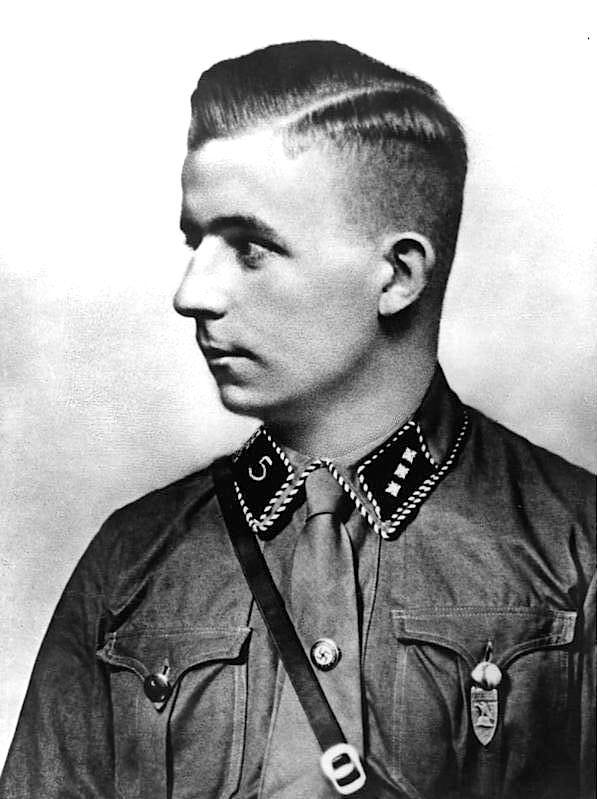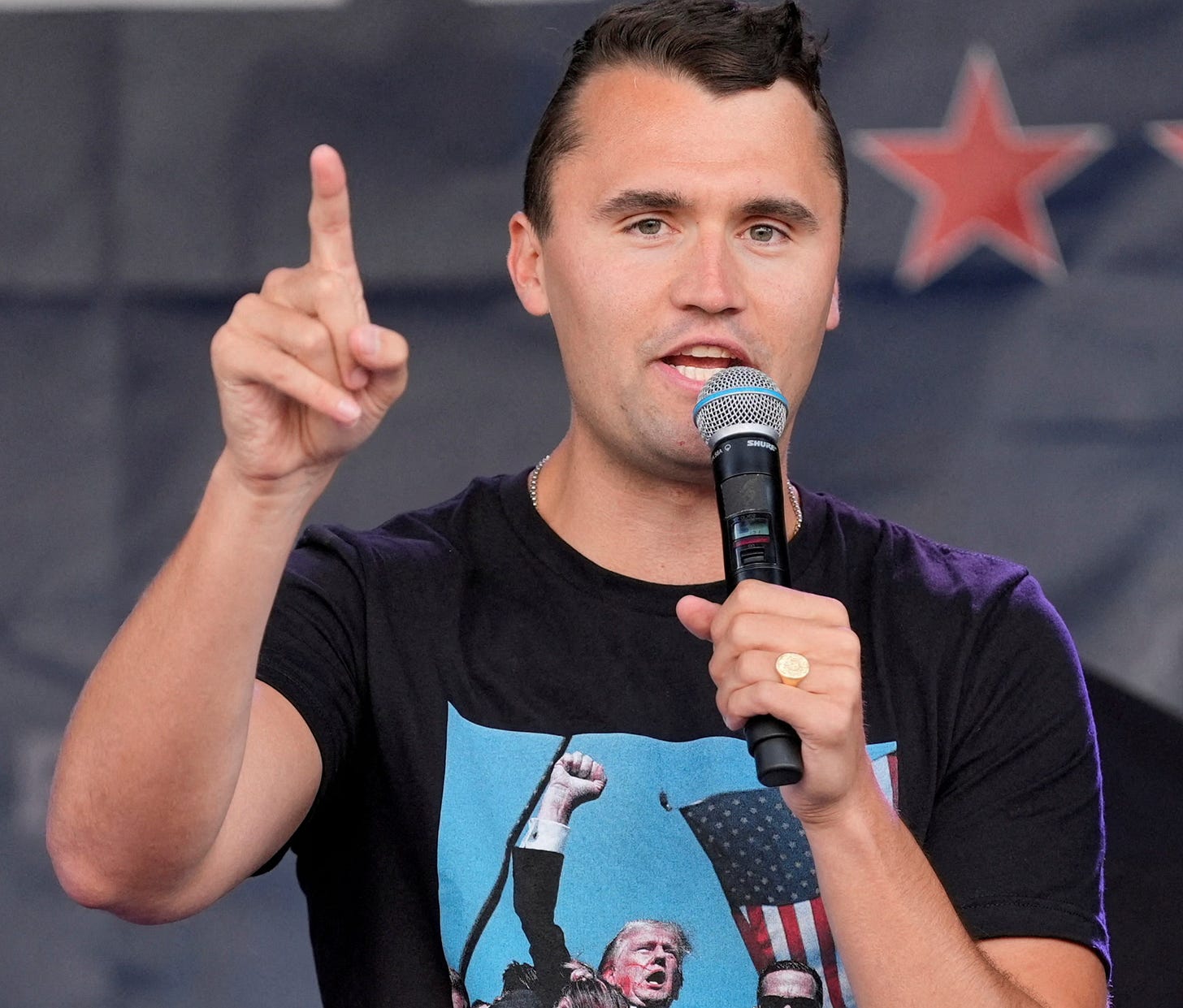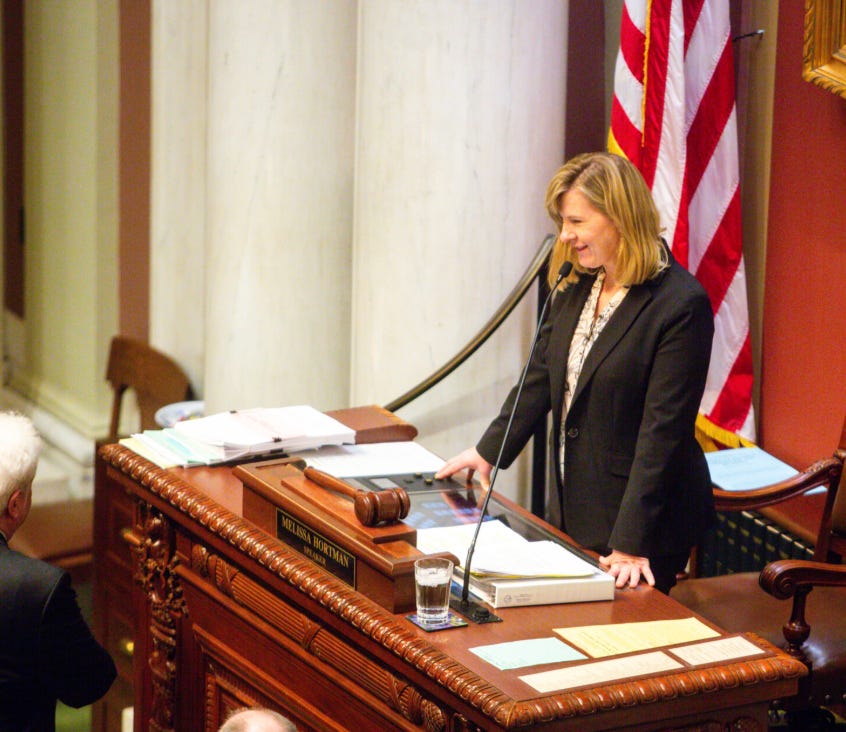Will Charlie Kirk’s death — and life — be remembered in full?

Young, good-looking and charismatic enough to impress his party’s elders while rallying lots of other young people to their cause, this passionate true believer was gunned down by people he had long attacked as enemies. As he lay dying, a backer released a statement saying he had been assaulted by “degenerate communist subhumans.”
In death, however, the assassinated man – the son of a Christian minister and a woman whose family included ministers — proved especially useful to his party. His funeral was filmed and turned into a major propaganda event as he was declared a martyr. The party’s top leader called his sacrifice to the “a monument more lasting than stone and bronze.”
The man was Horst Wessel, a Nazi party enthusiast who was killed in Berlin in 1930, as his party was beginning its ascent into infamy. Are we now seeing what happened to Wessel take place with a modern right-wing firebrand, Charlie Kirk?
Wessel was embraced by Nazi propagandist leader Joseph Goebbels and party organs. A wartime article in the Nazi-owned Völkischer Beobachter newspaper called Wessel “the hero of the Brown Revolution” and referred to his “sacrificial death” as one that “passionately inflamed millions who followed.”

Today, in Kirk’s honor, flags are being lowered to half-staff around the country by order of President Trump. That’s a distinction usually reserved for deceased presidents and other leaders. Also, the president, without evidence of what drove Kirk’s assassin, was quick to decry the “radical left” for his killing.
So, are we seeing political martyrdom opportunistically bestowed on this polarizing young figure? Are we seeing a nobility bestowed on him in death that many say wasn’t deserved in his life?
Social media, cable TV and other outlets lately have been filled with praise for Kirk, leader of the campus-focused Turning Point USA organization. Vice president JD Vance called him “a true friend. The kind of guy you could say something to and know it would always stay with him.” A tearful CNN commentator, Scott Jennings, called him “one of the most unique and special people in the conservative movement today. What he was able to build, the people he was able to organize, was just so large and powerful.”
In The Wall Street Journal, Peggy Noonan called Kirk “a presence in the life of a whole generation of young conservatives” adding that “he set a kind of template for how to discuss politics—with good cheer and confidence, with sincerity and a marshaling of facts.” Over at The Washington Post, George Will compared Kirk with William F. Buckley, that eloquent lion of the right, saying: “Kirk was killed at the beginning of what was to have been a Buckley-like tour of political evangelism among the unconverted: college students. He also was probably killed because, unlike Buckley when he was 31 in 1956, Kirk was advocating a powerful and ascendant politics.”
Even at The New York Times, Ezra Klein celebrated Kirk. “You can dislike much of what Kirk believed and the following statement is still true: Kirk was practicing politics in exactly the right way,” Klein held. “He was showing up to campuses and talking with anyone who would talk to him. He was one of the era’s most effective practitioners of persuasion.”
When any young person – and Kirk, the father of a 1-year-old son and a 3-year-old girl, was just 31 – is killed, it is monstrous. And when the murdered person is an influential political figure, it is even worse. Such assassinations must be decried anywhere and at any time by everyone on any end of the political spectrum. Such a killing is anathema to the free discourse that is a pillar of American culture or should be.
“There is no place in our country for this kind of violence,” former President Joe Biden said. “It must end now. Jill and I are praying for Charlie Kirk’s family and loved ones.” And his predecessor, Barack Obama, similarly said: “We don’t yet know what motivated the person who shot and killed Charlie Kirk, but this kind of despicable violence has no place in our democracy.”
Also, I concede that it seems churlish to speak ill of the dead person, especially so soon after his passing.
But I also fear that in the lionizing of Kirk, we are seeing a far-too-convenient beatification of sorts that serves Trump and Trumpism too well. Will Kirk’s death be used to further justify outrages that go even beyond anti-immigrant roundups, the placement of troops in cities? Will we now see further rollbacks of reproductive rights and the freedom to marry a person of one’s choosing?

We do ill to ourselves as a society to forget or downplay many of the things that Kirk stood for and built his organization around. As journalist and blogger Erin Reed has written, Kirk in 2023 called transgender people an “abomination” and a “throbbing middle finger to God.” Do such sentiments reflect a compassionate and goodhearted man?
In one interview, Reed wrote, he said the first thing he thinks when he sees a Black pilot is, “Boy, I hope he’s qualified.” In another, Kirk called for the man who assaulted Nancy Pelosi’s husband to be bailed out of jail. He denounced the Civil Rights Act of 1964— and infamously said a few gun deaths were worth his Second Amendment rights in the aftermath of a school shooting. He even derided empathy itself as worthless, a sentiment that Reed wrote has since metastasized into a broader far-right project to strip empathy education from schools.
In another interview, Reed noted, Kirk mocked fellow Christians who followed scripture about loving their neighbor. He scoffed that God also “calls for the stoning of gay people,” which he described as “God’s perfect law.”
As the Anti-Defamation League has written, Kirk promoted conspiracy theories about election fraud and Covid-19. He was an enthusiastic backer of Christian nationalism, “the idea that Christians should dominate government and other areas of life in America,” the ADL reported. His TPUSA organization, the league said, has been a magnet for racists and white supremacists.
“Kirk has created a vast platform for extremists and far-right conspiracy theorists, who speak and attend his annual AmericaFest and other events sponsored by TPUSA,” the ADL reported. “AmericaFest has showcased extreme rhetoric from speakers and attendees and has attracted white supremacists.”
Will his death legitimize even the worst of his views? And was this really the sort of person young Americans should admire and emulate?
Certainly, Trump thinks so: he plans to bestow the Presidential Medal of Freedom posthumously on him. “Charlie was a giant of his generation, a champion of liberty and an inspiration to millions and millions of people,” the president said. “The date of the ceremony will be announced,” he said, adding, “and I can only guarantee you one thing, that we will have a very big crowd.”
Crowds, of course, are important to Trump. And with Kirk’s death offering him a golden chance to draw an audience, this is an opportunity the president will not pass up. We don’t know how and when he’ll commemorate Kirk, but he’s almost certain to make a big show of it.

Recall that Trump has said little about other killings of Democratic leaders. In a Sept. 10 video, USA Today noted, the president did not mention the June shooting of Minnesota House of Representatives speaker emerita Melissa Hortman, though he alluded to his own survived assassination attempts and the shooting of Rep. Steve Scalise, R-Louisiana in 2017. He offered no presidential medal or flag lowering for Hortman.
The president also did not mention other attacks on Democrats, including an arson attack at Pennsylvania Gov. Josh Shapiro’s house, a kidnapping plot against Michigan Gov. Gretchen Whitmer or an assault on former House Speaker Nancy Pelosi’s husband in their home.
Those events apparently don’t serve Trump’s agenda as well as Kirk’s death does.
As former President Obama said, we don’t know what motivated Kirk’s assassin, and it’s possible we never will learn that. Will it prove to be a “leftist” assault, as Trump suggested? In two attempts on Trump’s life, the would-be killers – Thomas Matthew Crooks and Ryan Wesley Routh — seemed to have been driven more by mental illness, anti-government beliefs or antisemitism.
Back in pre-Nazi Germany, Wessel was killed by Communist assassins. His death helped galvanize and further drive the Nazi movement. Kirk’s life certainly helped do the same for Trumpism. Will his death now do even more to advance that cause? And will his life be remembered in its fullest and most honest way, or as something to be sanitized, a martyrdom Trump can market?
